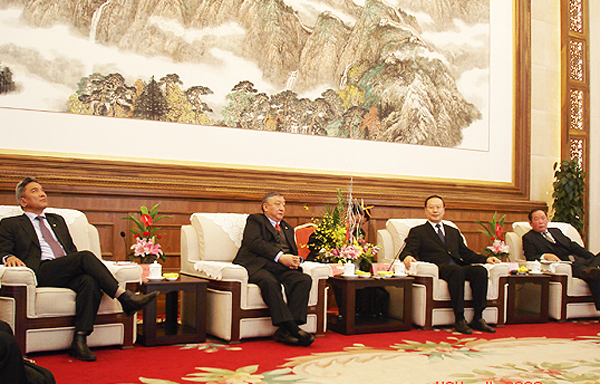
courtesy: CTA/DIIR)
(TibetanReview.net, Mar30’19) – The main reason for the failure of the 2002-2010 talks between envoys of the Dalai Lama and officials from the Communist Party of China’s United Front Work Department was “the deliberate misinterpretation of the Dalai clique of the preconditions of the central government about the subject and theme of negotiations,” said a commentary posted on news.cgtn.com, which is run by China’s official China Central Television (CCTV), Mar 28.
The commentary, authored by Xiao Jie, an assistant fellow at the China Tibetology Research Center, said “there has always been a precondition drawn by the central government of China that talks should be held with personal representatives of the Dalai Lama on his destiny and that of the people around him, rather than with the so-called Tibetan government in exile on the autonomy of Tibet.”
The commentary has accused the representatives of the Dalai Lama of having insisted on their status as officials in the Tibetan government in exile, and of having tried to talk about the autonomy of “Greater Tibet”, “which comprises the Tibet Autonomous Region and Tibetan areas in four provinces, which were unacceptable to the central government of China.”
The commentary concluded that “without common grounds, no talk or dialogue could proceed, let alone achieve any positive outcomes.”
The commentary expressed confidence that “when the Dalai Lama passes away in the future, the Tibet independence movement will lose its backbone, and confront a serious setback without any doubt.”
However, given the popularity of support for it in the West, the Tibet independence movement may not lose its basic momentum in the near future, the commentary admitted.
The commentary maintained that previous talks, held from 1979 until early 1990’s, hade also been based on the same precondition.
China is seen as having hardened its position on the Dalai Lama issue in its latest white paper on Tibet. Whereas it previously said the door for talks with him remained open, it has been pointed out that the white paper titled “Democratic Reform in Tibet – Sixty Years On” issued by China’s State Council Information Office on Mar 27, is devoid of any such mention.





